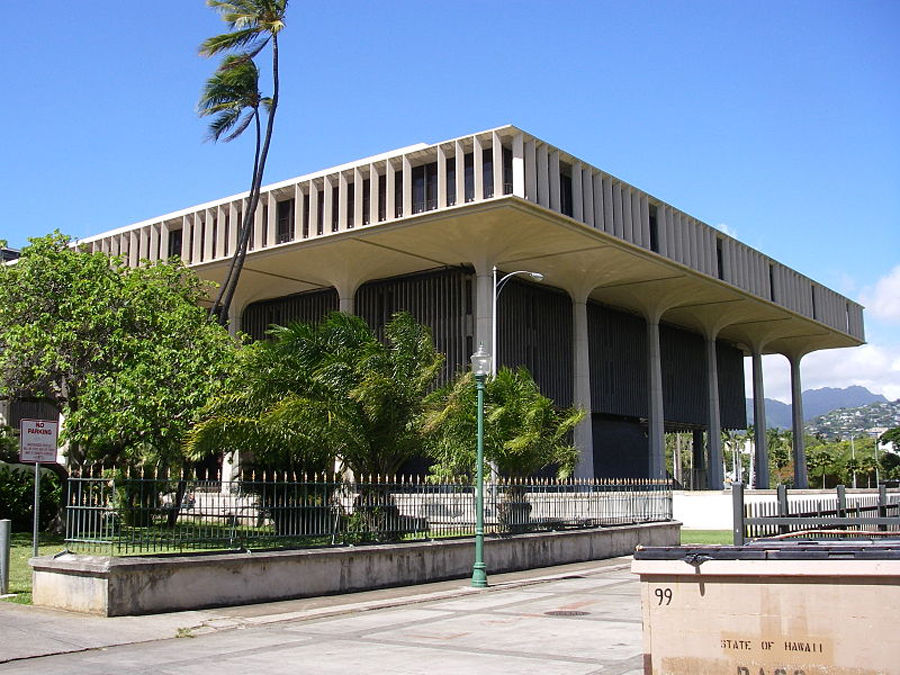HONOLULU — Two bills that could affect quiet title law, kuleana land ownership and a historic trail on the island unanimously passed legislative committee on Tuesday. “Kuleana lands are disproportionately represented in quiet title because it’s in conflict with western
HONOLULU — Two bills that could affect quiet title law, kuleana land ownership and a historic trail on the island unanimously passed legislative committee on Tuesday.
“Kuleana lands are disproportionately represented in quiet title because it’s in conflict with western concept of land,” said state Rep. Kaniela Ing (D-11, Kihei, Wailea, Makena), chair of the Ocean, Marine Resources and Hawaiian Affairs committee. “Where it seems to cause the most pain and disruption seems to be kuleana lands.
Kuleana land was created when the land was divided from the king because the kanaka didn’t have concept of land ownership as the westerners did, he said.
HB 860 aims to provide action for quiet title and kuleana land. If passed, legislation could force landowners, such as Facebook CEO Mark Zuckerberg, into mediation before being allowed to buy real estate in the state.
“The idea is to form a trust with this family and that’s actually worth something,” he said. “This is a model that folks have used, where they formed a trust and had a fighting chance, otherwise it’s a team against each individual holder and no fighting chance.”
Critics said the bill fails to distinguish between kuleana rights and Native Hawaiians who can trace their genealogy to the ahupuaa of the kuleana lands.
“Kuleana rights don’t have to be Native Hawaiians: the right to get water to the property, the right to build homes of the property,” said Michael Gibson, a Honolulu attorney. “Depending on how it prevails in the quiet title case, the new owner has the rights.”
In a letter to The Garden Island newspaper on January, Zuckerberg and his wife, Priscilla Chan, announced they were “dropping our quiet title actions and will work together with the community on a new approach.”
In the letter, Zuckerberg expressed regret for filing eight quiet title lawsuits on about a dozen parcels of kuleana land on his 700-acre estate in Kilauea.
Liko Martin, an Oahu native who has family on Kauai, said corporations needs to be restricted from carrying out land sales.
“I’d prefer a land freeze coming from the Department of Interior,” he said.
Rep. Nadine Nakamura, (D-14 Hanalei, Princeville, Kilauea, Anahola, Kapaa, Wailua), said the issue of kuleana lands is not new.
“It is a complicated matter that has been around for a long time,” she said in statement. “This gives us an opportunity now to have an open dialogue on the concerns and problems surrounding kuleana lands.”
Ing said the measure would allow landowners to be good neighbors.
“Most Hawaiians aren’t going to want to sell it; they just want the land,” he said. “That’s the intent of the bill. I don’t see it being that disruptive to the practice.”
Regarding HB 120, a measure that would designate the Ala Loa Trail on Kauai as a state trail, the difficulty lies in identifying the exact location of the trail, according to state officials.
A representative with the Office of Hawaiian Affairs said OHA has urged the Department of Land and Natural Resources to recognize the area.
Agnes Keaolani Marti-Kini, po‘o (head) of Aha Moku Koola, said the footpath that encompasses Kauai does exist.
“Now landowners, who have come in and were not informed the lateral cross of the Ala Loa was on their properties, are claiming the Ala Loa does not exist,” she said.
The Ala Loa Trail is protected by the Highways Act of 1892, Marti-Kini said.
“The challenge here on Kauai is a lot of the Ala Loa hasn’t been designated officially by the state of Hawaii,” said Shane Cobb-Adams, Anahola resident.
“So it’s created this challenge with new landowners (who) come in and buy a piece of paper and don’t understand there are public thoroughfares that go through their land that’s been there forever.”


